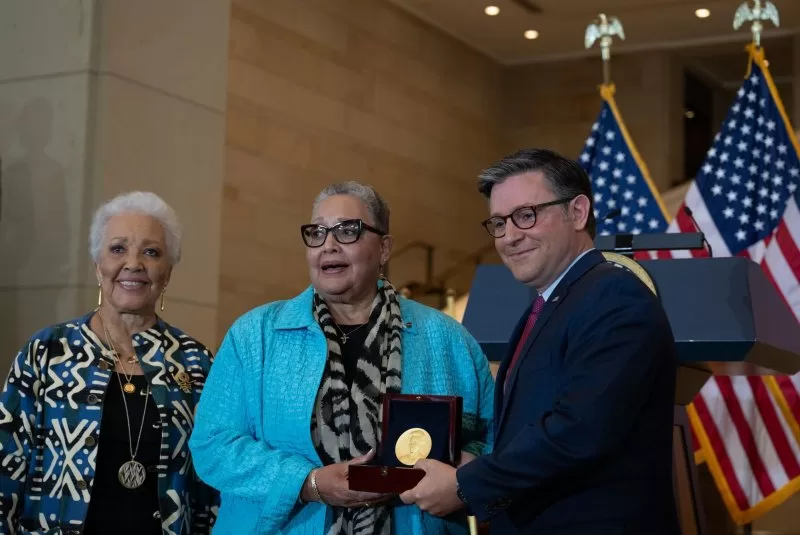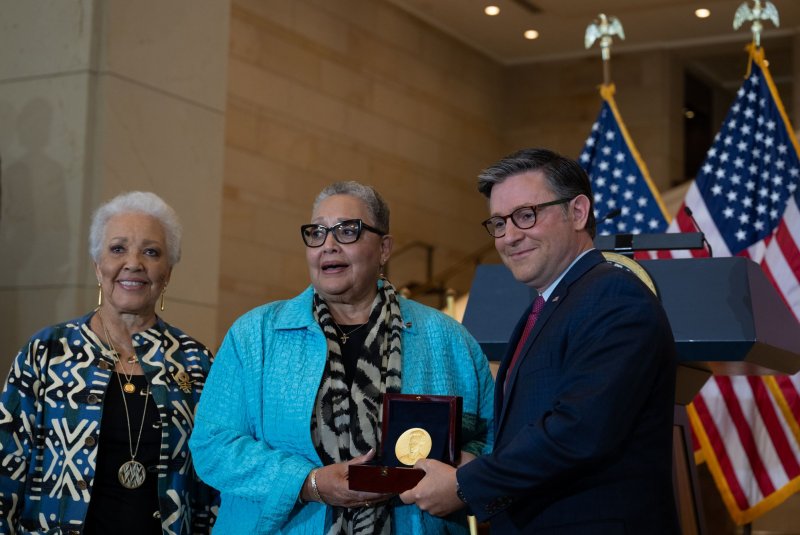1 of 3 | Family members of the “Hidden Figures” accept a medal from Speaker of the House Mike Johnson, R-La., at a Congressional Gold Medal Ceremony honoring NASA’s Hidden Figures in Emancipation Hall in the U.S. Capitol Wednesday. Photo by Annabelle Gordon/UPI |
License PhotoSept. 18 (UPI) — Four pioneering Black women received Congressional Gold Medals for their contributions to early efforts at space exploration during a formal ceremony at Emancipation Hall in the U.S. Capitol on Wednesday.
Katherine Johnson, Dorothy Vaughan, Mary Jackson and Christine Darden were honored for their work as computers, mathematicians and engineers on the space program. The current use of the word “computer” came about afterward.
Only Darden is still alive and watched the ceremony from her home in Connecticut as her family members and the family members of the other three women accepted the gold medals on their behalf.
House Speaker Mike Johnson, R-La., opened the ceremony and said the women are “giants on whose shoulders all of those astronauts actually stood at the time.”
The four women performed difficult calculations to make supersonic flight and the exploration of space possible despite the racism and sexism that they often encountered.
“They were paid less, received fewer opportunities for advancement and were not recognized for their contributions,” House Science, Space and Technology chairman Rep. Frank Lucas, R-Okla., said during the medal ceremony.
The women also were the subjects of a book entitled Hidden Figures that was published in 2016 and a subsequent film with the same title that earned three Academy Award nominations.
A fifth Congressional Gold Medal was awarded to “all women who served as computers, mathematicians and engineers at the National Advisory Committee for Aeronautics and NASA” from the 1930s and into the 1970s, the U.S. space agency said in a statement.
Andrea Mosie, NASA’s Apollo sample lead processor at the Johnson Space Center, accepted the fifth Gold Medal on behalf of the unnamed women.

